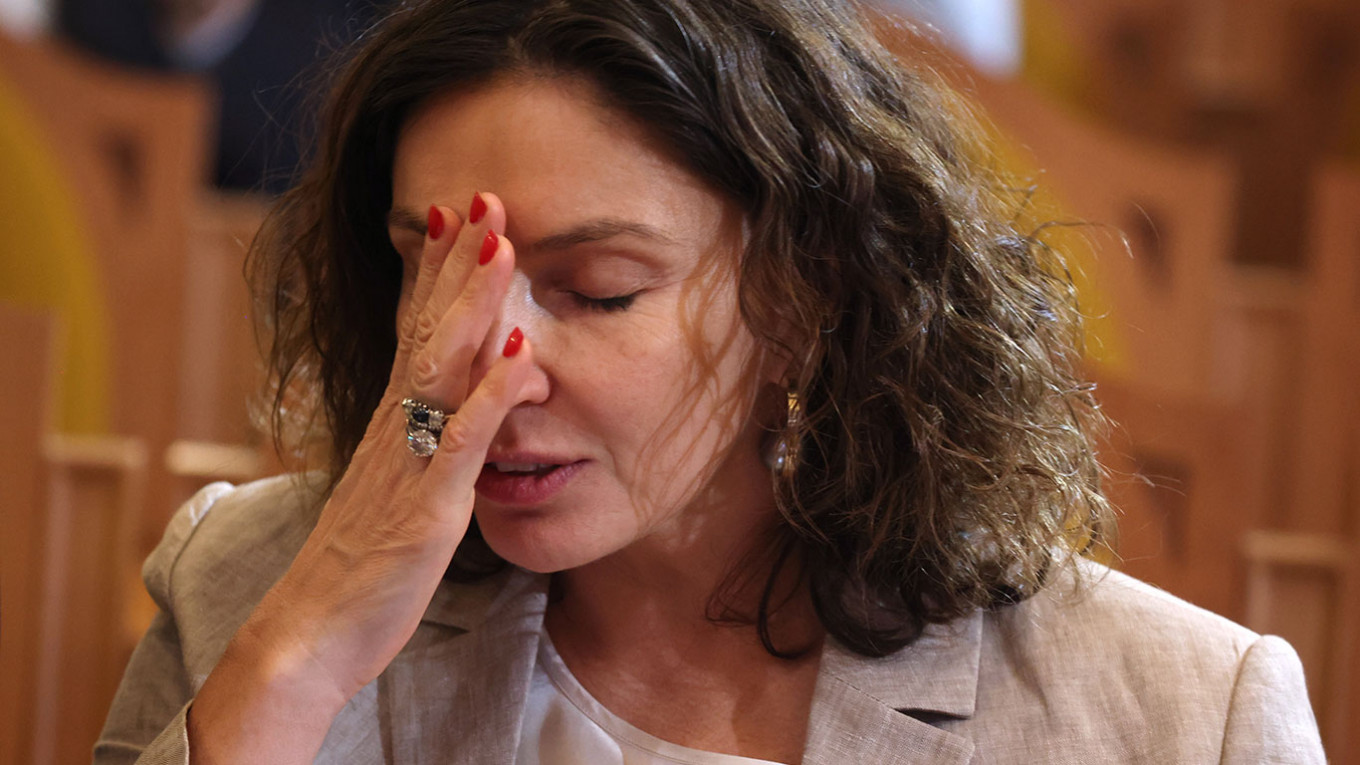
Of all the forms of art in Russia, documentary film is having the most difficult time.
The trials of the profession were made very clear at the end of March when the 15th edition of Russia’s largest documentary festival Artdocfest was canceled after the organizer, filmmaker Vitaly Mansky, was splashed with red paint by protesters from Russian nationalist group SERB (South-East Radical Bloc).
But a few years ago, before restrictive laws were passed, documentary filmmakers could still make films that offered alternative points of view on mainstream stories and gave platforms to underrepresented voices. One such filmmaker is French-Russian journalist Alexandra Dalsbaek. Her debut feature documentary “We Are Russia” (2020) tells a story of young activists campaigning for Alexei Navalny in the lead-up to the 2018 election.
Dalsbaek filmed in 2017 and 2018 and told The Moscow Times that, “Strangely enough, I could freely film on the streets of Moscow.” The police would routinely come to check her documents and then leave. She said that some interactions were “even polite.”
But now the “fake news” laws passed by the Russian government in early March make spreading so-called “false” information about the Russian army punishable by up to 15 years in prison. “Now to make a movie is to engage in self-censorship so that there is no danger to the person you are filming and yourself,” Dalsbaek said.
Another Russian filmmaker, Vera Krichevskaya, told The Moscow Times that documentary filmmaking on many topics had ended in Russia. “Putin’s Russia has no future. Documentary filmmakers can chronicle the end of Putin’s Russia, but this ‘end’ may go on for years. But who will record it, and how, and on what money?”
Krichevskaya’s most recent film, “F@ck This Job” (2021), tells the story of Russia’s only independent TV station Dozhd and the struggle its founder Natalya Sindeyeva and her team faced as they covered the war in Ukraine and Navalny’s investigations into state corruption. The channel, which had been accessible only online, suspended operations after the war in Ukraine began and war censorship was introduced.
“F@ck This Job” was not released in Russia — a bomb threat conveniently cancelled the premiere — but the film has received critical acclaim around the world.
“I think that my cinema is super patriotic,” Krichevskaya said. “It shows what other Russians are like.”
Boycotts pro and con
Krichevskaya advocates for global support of independent, dissident voices in Russian cinema because otherwise “no one else will help them.” But she backed the boycott of cinema and other art forms funded by the Russian government.
“There are a lot of [Russian] cultural figures who support the war. Why the hell should they be given a platform? Let them support the war inside their own country.”
Katja Fedulova is a Russian filmmaker living in Germany who makes documentaries about Russia’s political and social issues. She, like Krichevskaya, has no plans to work in Russia at present.
Fedulova’s feature documentary “Faith Hope Love” (2017) looks at three Russian women: a politician confronting corruption and injustice, an ex-beauty queen who fought in the war in Ukraine and an anti-abortion activist. Her mid-length film “The Patriot” (2018) profiles the youngest parliamentarian in the Russian Duma and protégé of ultra-nationalist politician Vladimir Zhirinovsky, Vasily Vlasov.
The boycott of Russian films has affected her, or rather her subject. Fedulova’s recent film is about an 11-year-old Russian boy who paints portraits of animals and gives the money he gets for them to animal shelters. The original premiere of the film was canceled by a broadcaster shortly after the Russian invasion of Ukraine.
“This is the strangeness of this boycott — what does a child have to do with it? Of course, he was very upset when he found out that the film would not be shown.”
Russians on the Hudson
Like the other filmmakers, Maxim Pozdorovkin doesn’t reside in Russia. The New York based Russian-American documentarian has directed a number of documentaries that look beyond the mainstream narratives of Russia’s political events.
Pozdorovkin’s “Our New President” (2018) is an eccentric documentary made up entirely of footage from Russian state media and user-generated videos, illustrating the power of the Russian propaganda machine and the ways the Kremlin used disinformation during Donald Trump’s 2016 presidential campaign.
“People talk about propaganda and disinformation through the prism of the true-or-false binary, but actually what I find more important is the emotional framework that people have been led into, almost psychologically,” Pozdorovkin told The Moscow Times.
Pozdorovkin said this emotional framework is a sense of “victimhood,” which is constantly reinforced by state propaganda and ingrained in the psyche of Russian people, getting them to support the government’s actions.
Now, he says, Russia’s new approach is the “quicksand principle of propaganda.”
“It’s the idea that the day-to-day narrative is changing so quickly that there is no foundation. You’re barraged by one story after another, sometimes mutually contradictory, sometimes not. As long as it creates this dissonant noise, it is working.”
But Pozdorovkin, all the same, will continue to dissect and utilize this “informational debris,” and he, like the other filmmakers, will continue to work.
“It is important for Russian documentary filmmakers to continue making their films,” Dalsbaek said. “If we can’t show them to the Russian people because of censorship restrictions, then at least we can show international audiences what is really happening in the country.”





